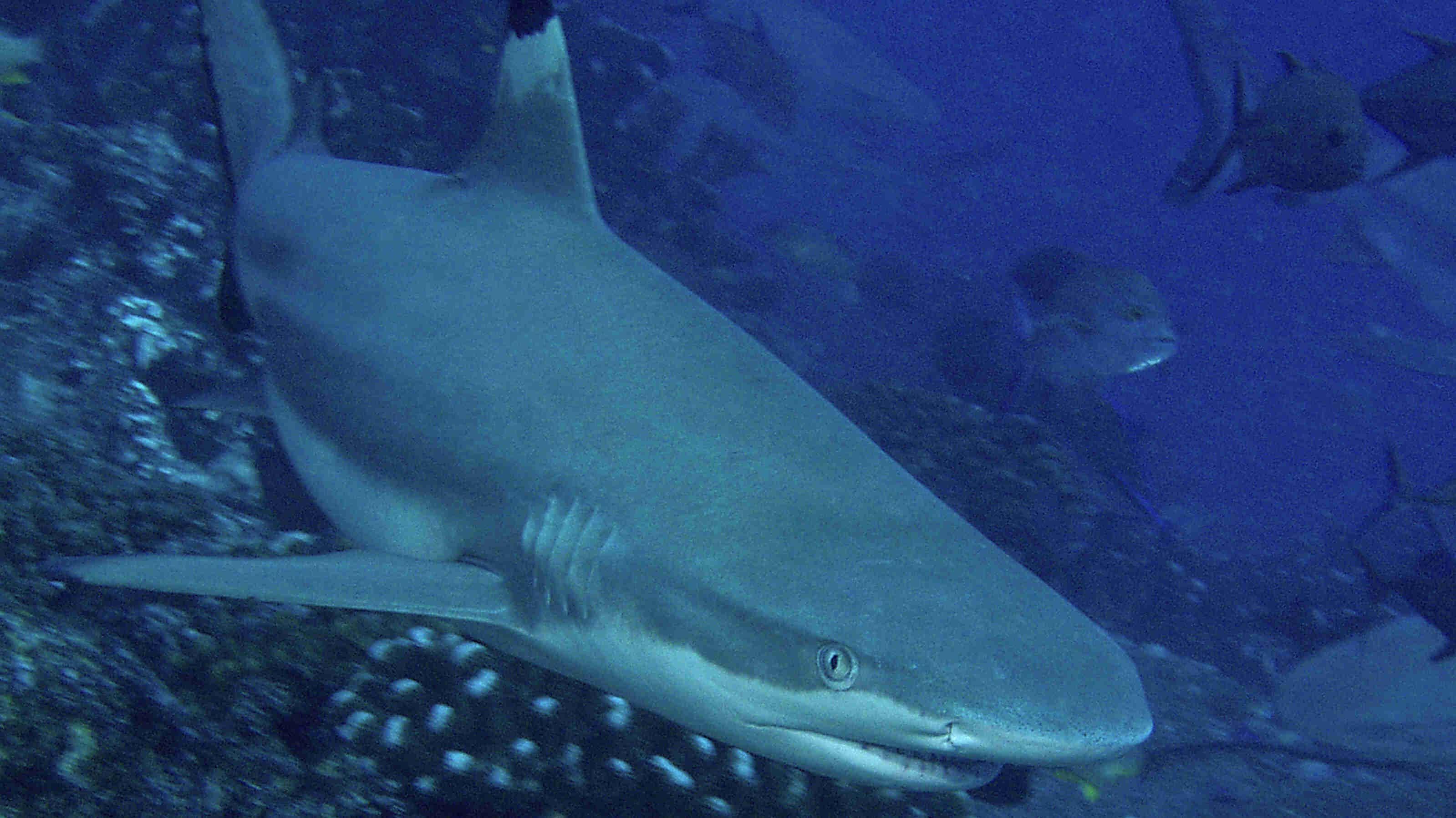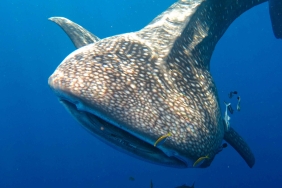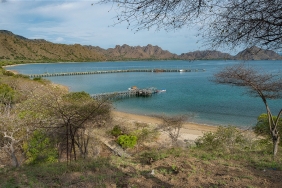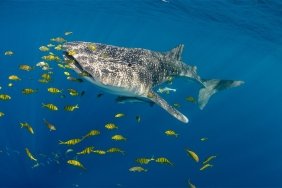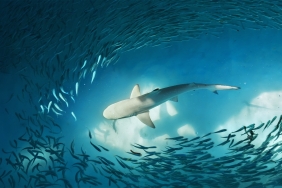WWF-INDONESIA LAUNCHES "SAVE OUR SHARKS" CAMPAIGN WEBSITE
Jakarta, May 13, 2020 - WWF-Indonesia launched sosharks.wwf.id as the Save Our Sharks ("#SOSharks") campaign website on Tuesday, May 12, 2020. The site was initiated to encourage the public, tourism service providers and seafood industry players to stop the trade and consumption of sharks. The launch of the website was accompanied by the organization of an online discussion titled "Shark Trends: Consumption or Conservation?" The webinar, moderated by presenter and #SOSharks Champion Daniel Mananta, featured speakers Business Development Manager Bandar Djakarta Group Shandra Januar; Communication Manager WWF-Indonesia Dewi Satriani; and model and actor and WWF-Indonesia Warrior Kelly Tandiono.
#SOSharks is a campaign to invite the public to stop the shark trade in Indonesia in supermarkets, online sales, and restaurants and stop all forms of shark culinary promotions in mass/social media. Born from the concern of community groups and several civil society organizations, #SOSharks was first initiated in 2013 in response to the ironic fact that products with shark ingredients of unknown origin are often found, as well as the high demand for shark fin consumption in Jakarta which reaches 2 tons per year. Through sosharks.wwf.id the public can show their commitment by signing the pledge and becoming "Shark Buddies" who are directly involved in efforts to monitor shark consumption in Indonesia as well as knowing directly which businesses are free from shark raw materials.
Director of Marine and Fisheries, WWF-Indonesia, Dr. Imam Musthofa Zainudin explained, "Currently, more than 50% of shark species are on the International Union for Conservation of Nature (IUCN) red list and some of them are categorized as critically endangered, which means they are only one step away from extinction. By not consuming sharks, we are giving them the space and time to recover and balance the marine ecosystem, which in turn helps sustain food security from our fisheries sector."
Agreeing with Imam, Business Development Manager of Bandar Djakarta Group, Shandra Januar said, "Bandar Djakarta Group is one of the #SOSharks campaign partners. We have stopped selling and serving shark dishes since 2014 because we realize the serious threat of shark fin consumption to the marine ecosystem. We are also actively inviting other businesses to take similar steps for the sake of environmental sustainability and also avoid the risk of corporate reputation due to business practices that are not friendly to nature and the environment."
Sharks are one of the most endangered species. As top predators, sharks control marine animal populations in the natural food chain. Healthy and diverse shark populations are essential for balancing marine ecosystems, including maintaining an abundance of the economically valuable and highly nutritious fish we consume. According to a 2019 report by TRAFFIC, Indonesia is still the largest shark fishing country in the world (2007-2017). This massive catch is due to the high market demand for shark products, disrupting the balance of the food chain in the marine ecosystem and negatively impacting Indonesia's food security now and in the future.
Today, the global movement to reduce shark consumption continues, with as many as 18,000 international hotel chains recorded to have implemented policies to no longer serve shark-based food.
"WWF will continue to support all efforts made by the government and all parties to carry out various shark conservation efforts. However, the efforts made must be greater than the rate of extinction of this shark species. Efforts to temporarily stop the consumption of shark products until the population recovers are a form of support and a form of responsibility from producers and consumers for the preservation of marine ecosystems and the availability of seafood raw materials for the future. As an economic alternative, sharks that remain sustainable in nature can be utilized as responsible marine tourism attractions, with active community involvement. The marine tourism sector will be able to provide much greater economic benefits because it provides alternative livelihoods for the community, while maintaining the health of shark populations in the wild." Imam concluded.
- DONE -
Note to Editor:
The Shark Status Review Manual in Indonesia can be downloaded here
For more information, please contact:
- Ranny Ramadhani Yuneni, Sharks and Rays Program Officer, WWF-Indonesia | Email: ryuneni@wwf.id | HP: +62 822-2551-9277
- Karina Lestiarsi, Media Relations Specialist, WWF-Indonesia | Email: klestiarsi@wwf.id | HP: +62 852-181-616-83
About WWF-Indonesia
WWF-Indonesia is an Indonesian incorporated civil society organization engaged in nature conservation and sustainable development, with the support of more than 100,000 supporters. WWF-Indonesia's mission is to halt environmental degradation and build a future where people live in harmony with nature, through the conservation of the world's biodiversity, the sustainable use of renewable natural resources, and support for the reduction of pollution and overconsumption. For the latest news, visit wwf.id and follow us on Twitter @WWF_id | Instagram @wwf_id | Facebook WWF-Indonesia | Youtube WWF-Indonesia| Line Friends WWF Indonesia.

